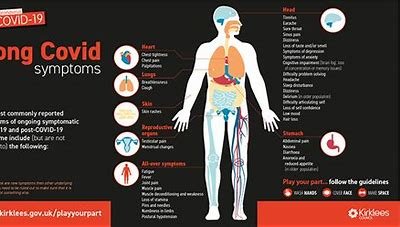A groundbreaking study conducted by the Researching COVID to Enhance Recovery (RECOVER) initiative of the National Institutes of Health (NIH) has identified 12 key symptoms that distinguish individuals with long COVID from those without. Long COVID refers to the post-infection conditions that can affect various tissues and organs in the body. The study, which examined data from nearly 10,000 patients, sheds light on the impact of the Omicron variant and vaccination status on the prevalence and severity of long COVID.
The 12 symptoms identified by the research team include post-exertional malaise, fatigue, brain fog, dizziness, gastrointestinal symptoms, heart palpitations, issues with sexual desire or capacity, loss of smell or taste, thirst, chronic cough, chest pain, and abnormal movements. By analyzing patient-reported symptoms, the researchers devised a scoring system that assigned points to each symptom. This system helped establish a meaningful threshold for identifying participants with long COVID.
Furthermore, the study revealed the existence of four distinct subgroups or “clusters” of long COVID, each with varying impacts on health. The findings emphasize the need to understand the underlying biological mechanisms of long COVID to develop effective interventions and treatment strategies.
The research team also observed that long COVID was more prevalent and severe among participants infected prior to the emergence of the Omicron variant in 2021. Additionally, unvaccinated individuals were found to be at a higher risk of developing long COVID and experiencing more severe symptoms. Reinfections were also associated with a higher frequency and severity of long COVID compared to those who had contracted COVID-19 only once.
Of particular significance is the subset analysis of patients who had a first COVID-19 infection after December 1, 2021, when the Omicron variant was circulating. Approximately 10% of these patients experienced long-term symptoms or long COVID after six months.
Study author Leora Horwitz, director of the Center for Healthcare Innovation and Delivery Science at NYU Langone Health, described the study as an important step toward defining long COVID beyond individual symptoms. The findings provide a foundation for scientific discovery and treatment design, while highlighting the need for further research to understand the complex nature of long COVID.
In conclusion, this comprehensive study conducted by the RECOVER initiative has identified 12 key symptoms that distinguish individuals with long COVID. The research also emphasizes the impact of the Omicron variant and vaccination status on the prevalence and severity of long COVID. These findings have significant implications for understanding and managing long COVID, leading to improved interventions and treatment strategies in the future.

